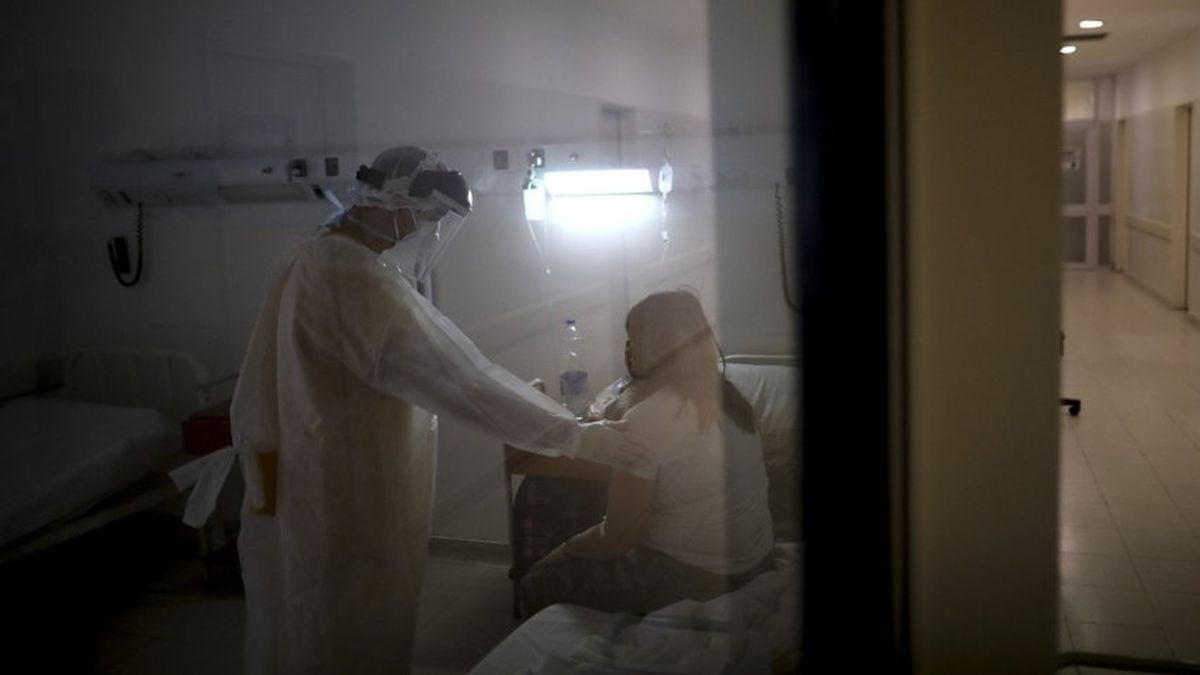The governor of Salta, in the northern Andean region of Argentina, decreed this Wednesday that foreigners who visit his province must begin to pay for the care they receive in the province's public hospitals.
In the midst of the discussion between the provinces and the Government of Javier Milei over the cuts in their public funds, the Government of Salta has decided to restrict attention to people who are not based in Argentina and who, as announced this morning by the Minister of Provincial health, Federico Mangione, means up to 10% of its annual budget.
“First the Salteños.
We see the rest,” Mangione said this Thursday when announcing the measure.
The province of Salta, where 1.4 million people live (just over 3% of the 46 million Argentines), shares a border with Chile to the west and Paraguay to the northeast, but its northern border with Bolivia is especially active due to the proximity to cities such as Salvador Mazza (in Argentina) and Yacuiba (Bolivia).
To smuggling, which carries products such as sugar, tobacco or even construction materials from one country to another through dozens of illegal crossings, there has been added the problem of what the Salta authorities call “health tours”, sporadic trips by Bolivian visitors. to be treated in the Argentine public health system.
“Not only do they come for consultations, but they come for highly complex surgeries, using supplies and prostheses that are very expensive,” Minister Mangione denounced this Thursday.
According to the Salta Ministry of Health, the province's public hospitals have treated 3,800 foreigners in the last three months alone.
According to Mangione, who has been warning about the situation for weeks, the figure is critical in emergencies such as the dengue epidemic, which in its last outbreak had a hospital occupancy of almost 90% of foreign citizens in towns such as Salvador Mazza, as announced by the minister in mid-February.
“Today, with all the economic problem and the nation's cuts, we are working to compensate for some of these losses,” Mangione stated this Thursday.
“For every input I use with another person who is not from Salta, I am leaving myself without a resource for the people of Salta.”
According to the decree signed by Governor Gustavo Sáenz, foreigners who visit the province with tourist or seasonal work permits, and those who are still in the process of requesting their Argentine residence at the immigration office, must contribute "to cover the expenses that generates its health care in provincial health centers” to “guarantee the solvency of the Salta public health system.”
Foreign residents legally residing in Argentina will still be able to access the public health system for free and the province will also attend to the emergencies of foreigners free of charge for “a humanitarian issue,” but the Government has stated that it is also looking for ways to control the care of foreigners who have Argentine residency but do not live in the country.
“Emergencies are attended to, which does not happen, and there is no reciprocity, with Argentines in neighboring countries,” Governor Sáenz defended this Thursday in a television interview.
As revealed by the governor, between 20 and 30% of the surgeries scheduled in the province have citizens from other countries as patients.
“No country does it.
Every time you travel you have to pay for medical insurance to receive emergency care, and if they are complex issues, much more.
This happens all over the world, Argentina cannot be left out of this.
The border provinces have to seek to resolve this issue.
“Everyone should do it.”
Sáenz has also stated that he made the decision due to “the lack of transfers” from the central government and the Argentine economic crisis.
“It deserves to resolve this issue once and for all, which we should have resolved whether we are economically bad or good,” said the governor, who began his second four-year term last December.
The initiative of the Salta government, which resolves a years-long controversy over the lack of reciprocity in medical care for Argentine citizens in border countries, has found justification in the cuts to the distribution of state taxes that have been driving the austerity plan since last month. of the Government of Javier Milei.
The conflict between the central government and the provinces has escalated to the brink of institutional crisis in other jurisdictions.
Last weekend, the governor of the Patagonian Chubut threatened the Government with cutting off the supply of gas and oil if it did not receive withheld transfers that he estimated at almost 16 million dollars.
A judge ruled this Tuesday to stop the withholdings, but the public fight between Milei and the governor of Chubut, Ignacio Torres, led half of the 24 Argentine jurisdictions to align themselves against the president.
The fight has gone beyond political colors: Torres belongs to the Together for Change alliance, led by former president Mauricio Macri and an ally of Milei, but he has not been the only governor who has gone to court to confront the president. .
The latest was Axel Kicillof, Peronist governor of the province of Buenos Aires, who has promised to go to the Supreme Court in his claim for the restitution of funds.
“Let the president not believe that no matter how much they continue to extort or threaten the provinces, we are going to stop fighting,” Kicillof warned on Monday when announcing that he would pursue a legal path after the failure of talks with the central government.
Follow all the information from El PAÍS América on
and
X
, or in our
weekly newsletter
.

